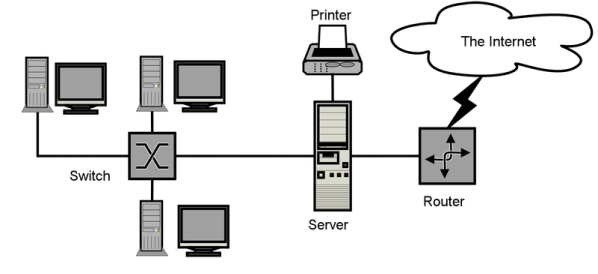 10 istilah-istilah
10 istilah-istilahHome > istilah-istilah > Bahasa Armenia (HY) > արժեզրկում
արժեզրկում
Rising prices, across the board. Inflation means less bang for your buck, as it erodes the purchasing power of a unit of currency. Inflation usually refers to consumer prices, but it can also be applied to other prices (wholesale goods, wages, assets, and so on). It is usually expressed as an annual percentage rate of change on an index number. For much of human history inflation has not been an important part of economic life. Before 1930, prices were as likely to fall as rise during any given year, and in the long run these ups and downs usually cancelled each other out. By contrast, by the end of the 20th century, 60-year-old Americans had seen prices rise by over 1,000% during their lifetime. The most spectacular period of inflation in industrialized countries took place during the 1970s, partly as a result of sharp increases in oil prices implemented by the OPEC cartel. Although these countries have mostly regained control over inflation since the 1980s, it continued to be a source of serious problems in many developing countries. Inflation would not do much damage if it were predictable, as everybody could build into their decision making the prospect of higher prices in future. In practice, it is unpredictable, which means that people are often surprised by price increases. This reduces economic efficiency, not least because people take fewer risks to minimize the chances of suffering too severely from a price shock. The faster the rate of inflation, the harder it is to predict future inflation. Indeed, this uncertainty can cause people to lose confidence in a currency as a store of value. This is why hyper-inflation is so damaging. Most economists agree that an economy is most likely to function efficiently if inflation is low. Ideally, macroeconomic policy should aim for stable prices. Some economists argue that a low level of inflation can be a good thing, however, if it is a result of innovation. New products are launched at high prices, which quickly come down through competition. Most economists reckon that deflation (falling average prices) is best avoided. To keep inflation low you need to know what causes it. Economists have plenty of theories but no absolutely cast-iron conclusions. Inflation, Milton Friedman once said, “is always and everywhere a monetary phenomenon”. Monetarists reckon that to stabilize prices the rate of growth of the money supply needs to be carefully controlled. However, implementing this has proven difficult, as the relationship between measures of the money supply identified by monetarists and the rate of inflation has typically broken down as soon as policymakers have tried to target it. Keynesian economists believe that inflation can occur independently of monetary conditions. Other economists focus on the importance of institutional factors, such as whether the interest rate is set by politicians or (preferably) by an independent central bank, and whether that central bank is set an inflation target. Is there a relationship between inflation and the level of unemployment? In the 1950s, the Phillips curve seemed to indicate that policymakers could trade off higher inflation for lower unemployment. Later experience suggested that although inflating the economy could lower unemployment in the short run, in the long run you ended up with unemployment at least as high as before and rising inflation as well. Economists then came up with the idea of the NAIRU (non-accelerating inflation rate of unemployment), the rate of unemployment below which inflation would start to accelerate. However, in the late 1990s, in both the United States and the UK, the unemployment rate fell well below what most economists thought was the NAIRU yet inflation did not pick up. This caused some economists to argue that technological and other changes wrought by the new economy meant that inflation was dead. Traditionalists said it was merely resting.
- Part of Speech: kata benda
- Sinonim (s):
- Blossary:
- Industri / Domain: Ekonomi
- Kategori: Ilmu ekonomi
- Company: The Economist
- Produk:
- Akronim-Singkatan:
Bahasa Lain:
Apa yang ingin Anda katakan?
Istilah-istilah dalam Berita
Istilah Terpilih
համակարգիչների ցանց
համակարգչային սարքավորումների փոխկապակցված համակարգ,որը տալիս է տեղեկության համօգտագործման հնարավորություն:
Kontributor
Daftar istilah utama
Marouane937
0
istilah-istilah
58
Daftar Istilah
3
pengikut
10 Of The Most Dangerous Hit-men of All Time
 10 istilah-istilah
10 istilah-istilah
tim.zhaotianqi
0
istilah-istilah
40
Daftar Istilah
4
pengikut
Taxi Apps in Beijing
 4 istilah-istilah
4 istilah-istilahBrowers Terms By Category
- Satelit(455)
- Penerbangan ke luar angkasa(332)
- Sistem kontrol(178)
- Pesawat ruang angkasa(72)
Ruang angkasa(1037) Terms
- Hukum secara umum(5868)
- Pengadilan(823)
- Paten & merek dagang(449)
- DNA forensics(434)
- Hukum keluarga(220)
- Bantuan hukum (kriminal)(82)
Layanan hukum(8095) Terms
- Ilmu ekonomi(2399)
- Ilmu ekonomi internasional (1257)
- International trade(355)
- Perdagangan valas(77)
- Ecommerce(21)
- Standarisasi ekonomi(2)
Ekonomi(4111) Terms
- Material physics(1710)
- Metalurgi(891)
- Teknik korosi(646)
- Magnetics(82)
- Pengujian pengaruh(1)
Sains material(3330) Terms
- Salon rambut(194)
- Fasilitas pencucian pakaian(15)
- Perawatan hewan(12)
- Produk-produk perawatan mayat(3)
- Senam(1)
- Foto portrait(1)


